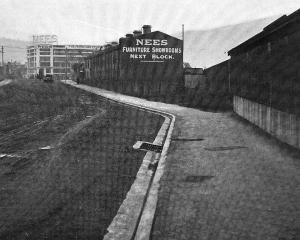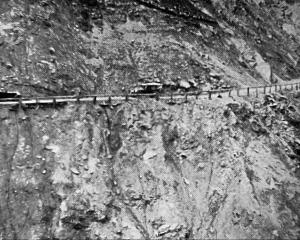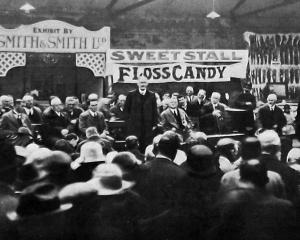Although its area is little more than two acres in extent, this little knoll rising from the water has a pleasing appearance on account of its being clad with native shrubbery, flax, etc, and it is to be regretted that the carelessness of some visitors to the spot last December resulted in the more open portion being completely swept by a fire.
The Government decided to bring the island under the provisions of the Scenery Preservation Act, and replant the burnt portion with native trees and shrubs.
This work resulted in a fine selection of the more hardy species being planted.
These include the native birches (properly beech), broadleaf, cabbage-tree, veronica, kowhai, karaka, olearia, pittosporum, and a number of other kinds - about 1000 plants in all.
Any person lighting a fire on the reserve or doing any injury to the small plantation will now be subject to a heavy penalty under the powers conferred by the Scenery Preservation Act.
With the passing of a few years the difference in the appearance of Titeremoana (to give the island its native name) will be much appreciated by the many who make the pleasant locality of Broad Bay and Portobello their summer resort.
• Many cyclists would appear to put a liberal interpretation upon what constitutes daylight, and are thus somewhat lax in attending to the requirements of their machines in the way of lights.
In the City Police Court yesterday several cases resulting from early morning arrests were heard.
It would seem to be a somewhat common offence of men going to work early on winter mornings to leave their lamps unlit, especially if daylight be anywhere at hand.
The excuses tendered yesterday by some of those arrested were that they did not think a light was necessary, as the moon was bright and the daylight was just breaking through.
The act, of course, provides a penalty between the hours of sunset and sunrise.
A peculiarity in one set of three cases was that each of the defendants stated that the time quoted by the constable who accosted them was too early - in two cases by about 15 or 20 minutes, and in a third by about an hour.
In this last case the constable said he had accosted the lad at 6.45am, but defendant stated on oath that he had not left the railway sheds, where he had been working all night, till 7.30am.
This case was dismissed.
The others were fined 5s and costs.
- ODT, 12.7.1910.












